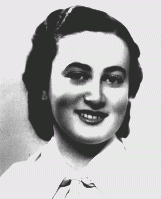You searched for: ������������������������������wjechac���aptao168���play
<< Previous | Displaying results 141-150 of 284 for "������������������������������wjechac���aptao168���play" | Next >>
-
Lesbians under the Nazi Regime
ArticleBeginning in 1933, the Nazi regime harassed and destroyed lesbian communities and networks that had developed during the Weimar Republic.
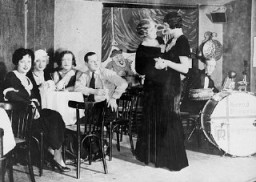
-
Assessing Guilt
ArticleAfter WWII, prosecutors faced the challenge of assessing the guilt of propagandists whose words, images, and writings had supported Nazi brutality and mass murder.
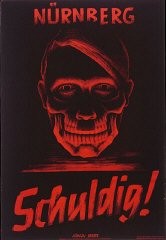
-
Quakers
ArticleThe American Friends Service Committee, a Quaker relief organization, helped thousands of people before, during, and after World War II. Learn about its refugee aid work.
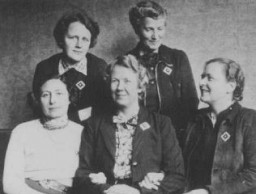
-
Danuta Justyna
ID CardDanuta was born to Roman Catholic parents in the small industrial town of Piotrkow Trybunalski in central Poland. Her father and mother were school teachers. She and her younger sister, Maria, became friends with two Jewish girls, Sabina and Helena Szwarc. Although their houses were more than a mile apart, the girls often played together. 1933-39: Danuta was planning on attending college in September 1939, but on September 1 Germany invaded Poland. Four days later, German soldiers streamed into Danuta's…
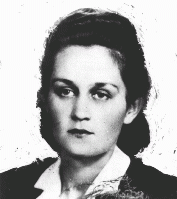
-
Maria Justyna
ID CardMaria was born to Roman Catholic parents in the industrial town of Piotrkow Trybunalski in central Poland. Her father and mother were school teachers. Maria attended grade school and secondary school in Piotrkow. She and her older sister, Danuta, became friends with two Jewish girls, Sabina and Helena Szwarc. Although their houses were more than a mile apart, the girls often played together. 1933-39: The Germans invaded Poland on September 1, 1939, and occupied Piotrkow four days later. Most schooling for…
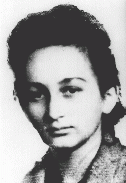
-
David Bayer
ID CardDavid was the second of four children born to religious Jewish parents in Kozienice, a town in southeastern Poland. His father, Manes, owned a shoe factory that supplied stores throughout the country. His mother, Sarah, took care of the home and children, and helped in the factory. Kozienice had a thriving Jewish community that constituted over half of the town's population. 1933–39: For most of the 1930s, David spent his days going to school, playing sports, and working in his father's shoe factory.…
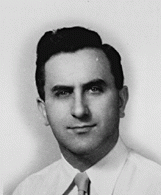
-
Gisella Renate Berg
ID CardGisella lived with her parents, grandparents, uncle, and older sister, Inge, in Lechenich, a small village outside of Cologne. The Bergs were an observant Jewish family. Gisella's grandfather was the president of the local synagogue association and her uncle was the cantor. Her father, Josef was a respected cattle dealer, who had many business and personal contacts with their Jewish and non-Jewish neighbors. 1933–39: Gisella was born several months after the Nazis came to power. Her parents feared for…
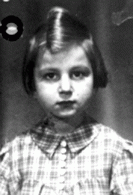
-
Kurt Pauly
ID CardKurt was born to Jewish parents in the city of Aachen, where his mother's family had resided since the 18th century. His father, though trained as a chef, worked as a butcher and also managed several stores for his father-in-law. The Paulys lived over one of those shops in the nearby suburb of Eilendorf. Kurt enjoyed large family gatherings, where he would play with his cousins, Anne and Margot Frank. 1933–39: When the Nazis came to power in 1933, the situation drastically changed for the Paulys.…
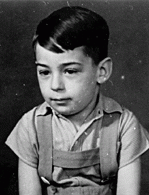
-
Susan Strauss
ID CardSusan grew up in Vacha, a small Thuringian town where her family had lived for more than 400 years. Her father, Herman, owned a general store and her mother, Bertha, took care of the home and children. Susan had a younger sister Brunhilde. The Strausses were one of about 25–30 Jewish families living in Vacha. 1933–39: Soon after the Nazis took power, many of Susan's friends stopped playing with her. In 1938 she was forced to leave the public school. That November, the Nazis unleashed a wave of pogroms…
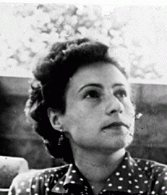
-
Barbara Marton
ID CardThe Martons were one of 35 Jewish families in the small northern Transylvanian town of Beliu. Barbara's father owned a grocery, and her mother helped out in the store. The Martons lived in a comfortable home with a flower garden, and enjoyed friendly relations with the townspeople. As a child, Barbara learned Hebrew on Sunday mornings at the home of Beliu's rabbi. 1933-39: Barbara's father's business began to fall off when another grocery opened nearby in Beliu. By 1937 business was so bad that they sold…
